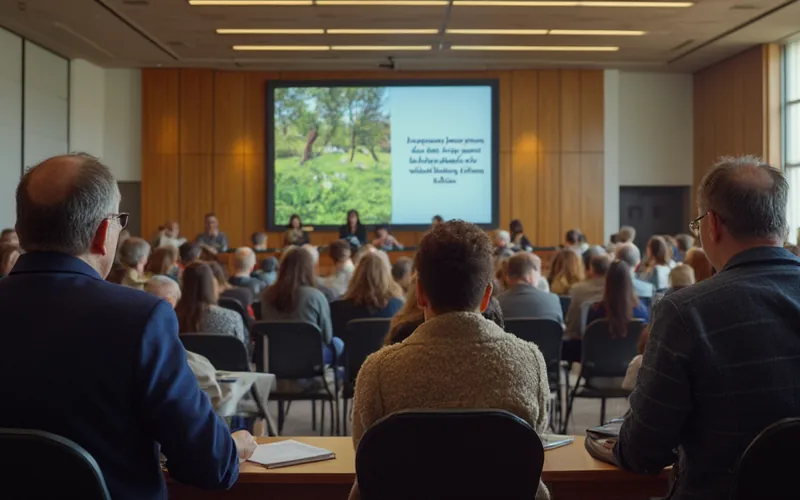COLUMBUS, Ohio (AP) — The City of Columbus is considering revising its weed code to ease restrictions on native plants that benefit pollinating insects, such as bees and butterflies.
Christopher Wyche, chair of the Public Utilities and Sustainability Committee, introduced legislation during a late April Columbus City Council meeting aimed at protecting and encouraging pollinator gardens.
“About 75% of the world’s flowering plants and 35% of our food crops depend on pollinators,” Columbus Public Health policy analyst Karima Samadi said at the meeting. “However, pollinator populations are declining dramatically due to habitat loss, pesticide use and climate change.”
The current city code prohibits residents from growing weeds or brush taller than one foot. The proposed legislation would allow residents to bypass these restrictions if they demonstrate the plants are part of a native pollinator garden.
“Pollinator gardens provide food and shelter to many of our pollinators, increasing their chance for survival,” Wyche said. “While some people do not like the look of pollinator gardens, our very own survival is tied with that of our pollinators.”
Several residents testified at the meeting, sharing experiences of receiving city code violations for their pollinator gardens. Kellen Calinger-Yoak reported being threatened with a $1,000 fine and six months in jail after a neighbor’s complaint.
“My garden, as always, was well-maintained and clearly intentional,” Calinger-Yoak said. “All I’m asking is to be able to plant native species that thrive in Ohio, support biodiversity and do no harm to my neighbors, without them being able to use the government to threaten me.”
Wyche believes the updated code would reduce legal disputes and alleviate the burden on the legal system. The proposal includes guidelines for pollinator gardens, requiring a 30-inch buffer between properties, the use of Ohio-native plants, and limiting gardens to no more than half of a front yard.
Some residents argued the legislation does not go far enough, criticizing the limitation on yard space. Additionally, Calinger-Yoak noted her garden was cited under Columbus’ solid waste code, not addressed in the proposal.
Despite some criticism, most residents expressed support for the legislation as a positive step. Wyche said he would consider public feedback when revising the ordinance, noting that all legislation involves compromise to balance the concerns of all Columbus residents.
The council removed milkweed from its definition of weeds in the city’s housing code last year, spurring discussions on further support for pollinators, Wyche noted.
The Public Utilities and Sustainability Committee will reconvene on May 21 to continue discussing the proposal.























